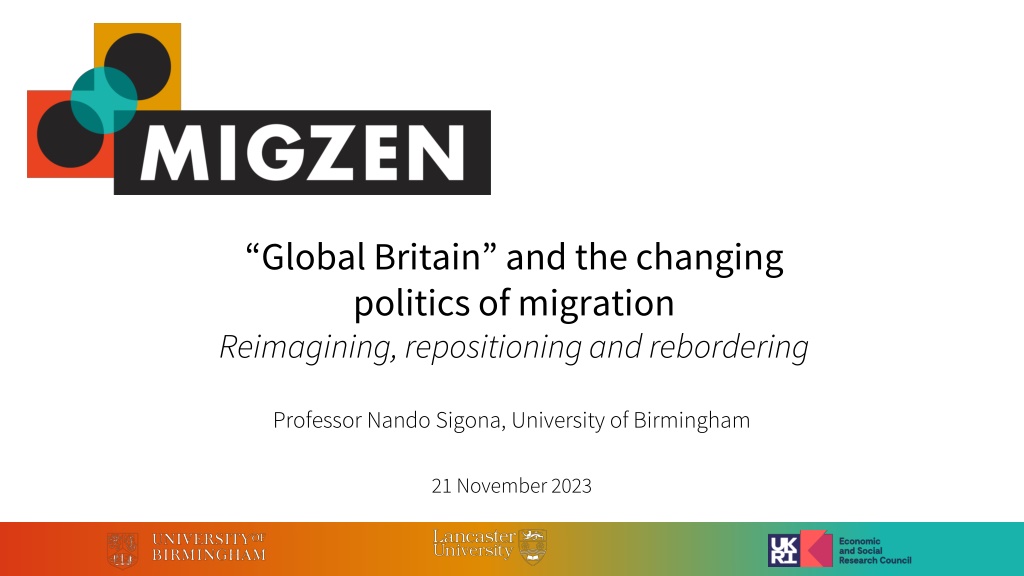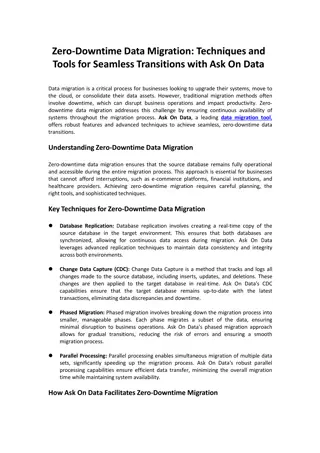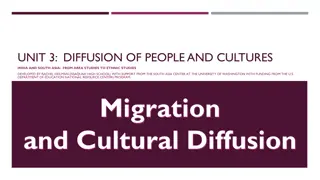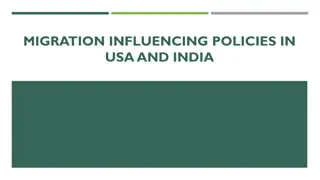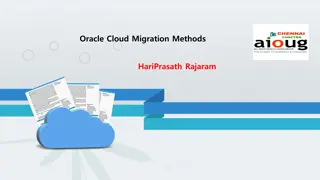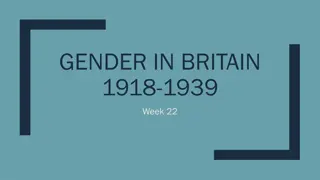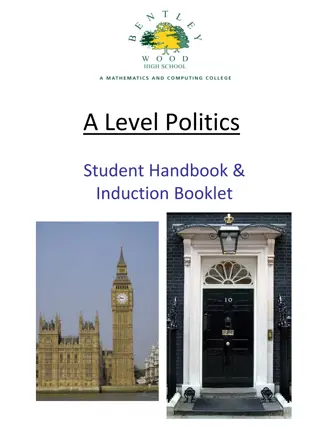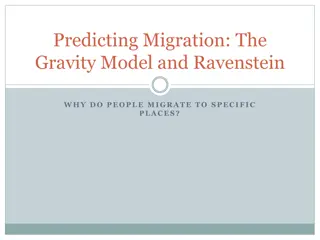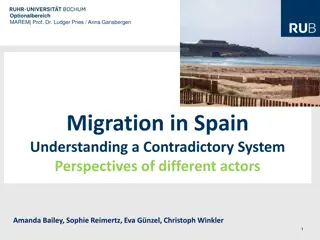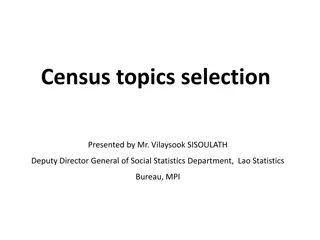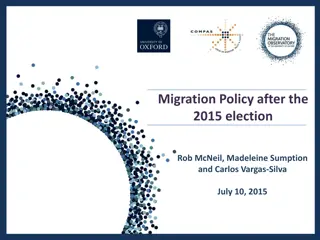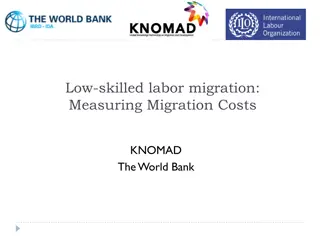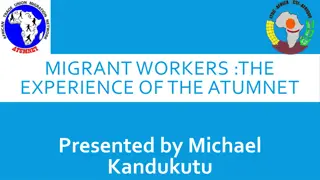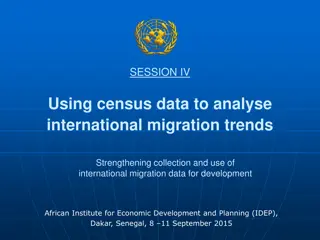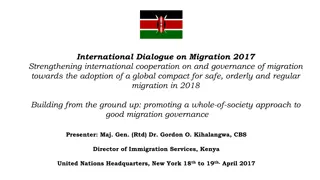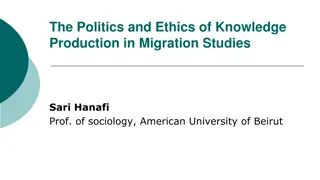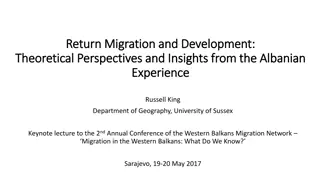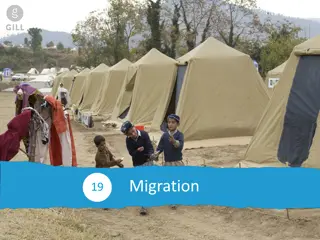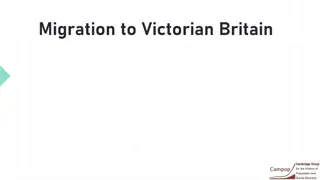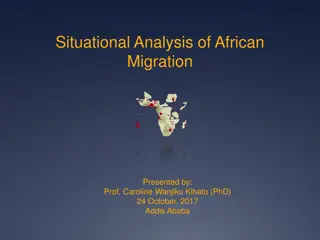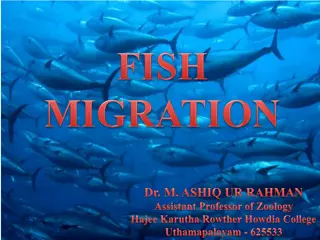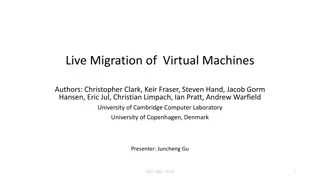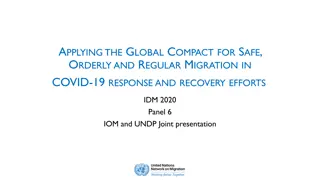“Global Britain” and the changing politics of migration
Explore post-Brexit migration changes and their impact on UK-EU flows. Reflect on settled populations redefining futures due to evolving legal statuses, crises, and the pandemic. Investigate migration governance impacts on decisions and settlement experiences. Project duration: Jan 2021 - March 2024.
Download Presentation

Please find below an Image/Link to download the presentation.
The content on the website is provided AS IS for your information and personal use only. It may not be sold, licensed, or shared on other websites without obtaining consent from the author. Download presentation by click this link. If you encounter any issues during the download, it is possible that the publisher has removed the file from their server.
E N D
Presentation Transcript
Global Britain and the changing politics of migration Reimagining, repositioning and rebordering Professor Nando Sigona, University of Birmingham 21 November 2023
Contents MIGZEN aims & objectives Reimagining Britain and rebordering Britons: Making Global Britain through migration Immigration after Brexit o Comings and goings o Terms and conditions o Immigration enforcement before and after Brexit Conclusion
Research Aims How, and in what ways, have the volume, geography and direction of migration flows between the UK and EU changed since Brexit? And how does this relate to global migrations to and from the UK? In what ways do settled populations British citizens resident in EU member states before Brexit and EU citizens living in the UK reassess their futures in consequence of changing legal statuses (brought about through Brexit), personal circumstances, political and economic crises, and the COVID-19 pandemic? How do transformations to migration governance regimes intervene in (a) decisions to migrate and repatriate (b) subsequent experiences of settlement for those newly migrating between to and from the UK since Brexit? The project runs from January 2021-March 2024.
Reimaging Britain Redefining the politics of belonging Redefining the politics of belonging and the terms and conditions of and the terms and conditions of membership membership Making Global Britain through Making Global Britain through migration: taking back control to do migration: taking back control to do what? what? Theresa May Theresa May, PM, 2017 The British people voted to leave the European Union and embrace the world. [ ] It means taking the opportunity of this great moment of national change to step back and ask ourselves what kind of ask ourselves what kind of country we want to be country we want to be [ ] I want a truly Global Britain [emphasis added].
(The politics of) migration in post-Brexit Britain We will introduce new legislation to make it unambiguously clear that, if you enter the UK illegally, you should not be able to remain here. Instead, you will be detained and swiftly returned either to your home country or to a safe country where your asylum claim will be considered. (Rishi Sunak, 13 December 2022)
Immigration after Brexit: changing the demos Long-term net migration, 2018-2022 800000 700000 600000 500000 400000 300000 200000 100000 0 YE Jun 2019 YE Jun 2020 YE Dec 2020 YE Jun 2021 YE Jun 2022 YE Mar 2019 YE Mar 2020 YE Mar 2021 YE Mar 2022 YE Sep 2019 YE Sep 2020 YE Sep 2021 YE Sep 2022 YE Dec 2018 YE Dec 2019 YE Dec 2021 YE Dec 2022 -100000 non-EU EU British Total Long-Term Net Migration
Immigration after Brexit: the brightest, the best and the rest Australia Australia- -like point based system like point based system - Work (268k); Family (48k) ; Study (485k); Asylum (75k) Ad hoc humanitarian schemes Ad hoc humanitarian schemes - mostly BN(O) from Hong Kong (160k in 2 years) and Ukrainians (210k); small number of refugees from Afghanistan and Syria
Terms and conditions: Stratifications of rights From EU citizens to EU migrants to migrants (before and after EUSS) Ad hoc arrangements with varying degrees of rights and entitlements, but also requirements duration, fees vary. British Nationals (Overseas) no restriction of how many people could apply and, unlike other visa routes, the requirement for a minimum income was waived. Government provided funds for housing and childcare support under certain circumstances vs. quotas and stringent eligibility requirements for the resettlement of Afghans and Ukrainians. Irregular entry is used to further restricts rights and entitlements for in Irregular entry is used to further restricts rights and entitlements for in- -country asylum applicants. asylum applicants. country
Policing the borders of membership Paradox of tough talk and little action Negotiating return agreements with third countries and country of origin is expensive and requires trade-offs which are higher than before The Brexit repositioning is also implemented by the closure or removal of some rather than others. The growth in the presence of EU nationals removed after being in immigration detention show the increased visibility of EU migrants to the immigration control & enforcement apparatus. EU citizens now make almost 50% of those forcefully removed by the UK.
Making Global Britain through migration Fragmentation of immigration statuses and the production of docile, precarious and grateful migrant workers it is not just about numbers but the terms of their presence Tensions Drivers: Foreign policy priorities, struggling economy and trade deals Tensions between brightest and the best discourse and Australia-like point-based system and growing number of sectors which struggle to find workers due to bureaucracy, high costs and loss of appeal for EU workers (reorientation also from an EU perspective) New priorities for immigration enforcement but also challenges revealing of the reality of diminished diplomatic leverage.
